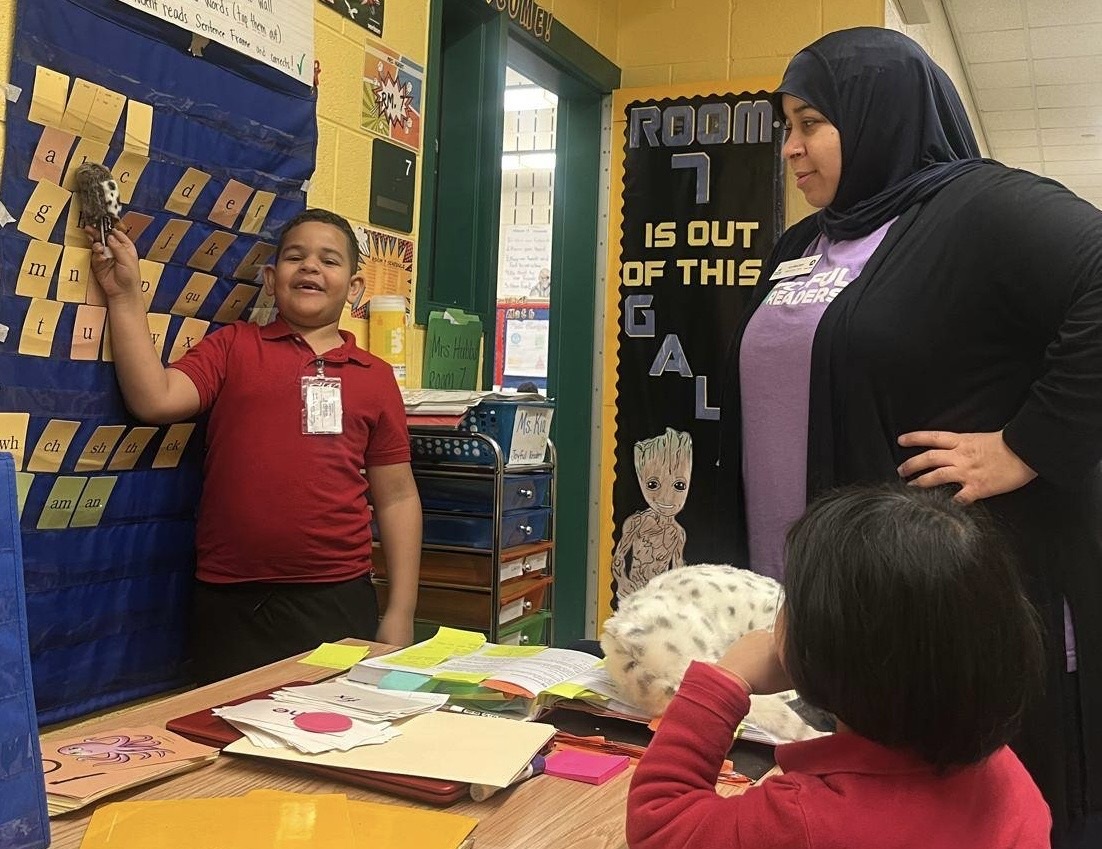
Joyful Readers: Nurturing Confident, Successful Readers for a Brighter Future
Joyful Readers is a relatively new initiative that aims to combat a serious problem: a lack of fluent reading skills in children going into the fourth grade. The reason this is such a huge issue is that until that point, children are learning to read. After that, as the theory goes, children are reading to learn. That makes it crucial to get them up to scratch so they can get a decent education for a more successful future.
The way Joyful Readers chooses to tackle this problem is to bring in full-time tutors who work intensively with young students inside Philadelphia schools. These tutors aren’t just any tutors, but AmeriCorps volunteers who are trained in proven methods to get kids reading up to scratch. It’s a program and a method that’s yielding impressive results.
We need more such programs, and these programs need and deserve our support. This particular small grant recipient appears to have a successful formula for getting kids to read. We put some questions to Joyful Readers Development Director Sarah DeLucas to learn more about this work.
Kars4Kids: Joyful Readers currently provides daily reading tutoring to students in 18 Philadelphia schools. Do you operate mainly in Title I schools? How would you describe your demographic?
Sarah DeLucas: The schools we operate in are both district and charters schools mainly concentrated in West and North Philadelphia—areas with some of the highest concentrations of poverty in the city. Our partner schools predominantly serve Black and Latinx students; 94.1% of the students enrolled in our program are students of color. We are projected to serve approximately 1,000 students this year. Our students are eager to learn, full of potential, and ready to thrive with the personalized support they receive through our program. Many begin their journey feeling uncertain about their reading abilities, but as the year progresses, they gain confidence and are able to access the joy of reading.
Kars4Kids: Only 33% of Philadelphia’s K-3 students read on grade level. How does this number compare with the number of students in other large cities who struggle with reading, and what is the national average? Are some Philadelphia children more likely to read below grade level than others?
Sarah DeLucas: The persistent gap between proficient and non-proficient readers is not unique to Philadelphia. It is a nation-wide issue that requires attention at the federal, state and local levels. However, schools across Philadelphia have a reading proficiency rate well under the norm. Systemically under-resourced schools, staggering rates of poverty, substandard instructional practices, and the legacy and continued presence of structural racism have all contributed to inequitable and unacceptable educational outcomes for Philadelphia youth. Joyful Readers’ target student population – Black and Latinx students who live in poverty – are disproportionately affected when compared to their white peers. Without attaining competent reading skills by the 4th grade, these students are 8 times more likely to leave high school without a diploma.
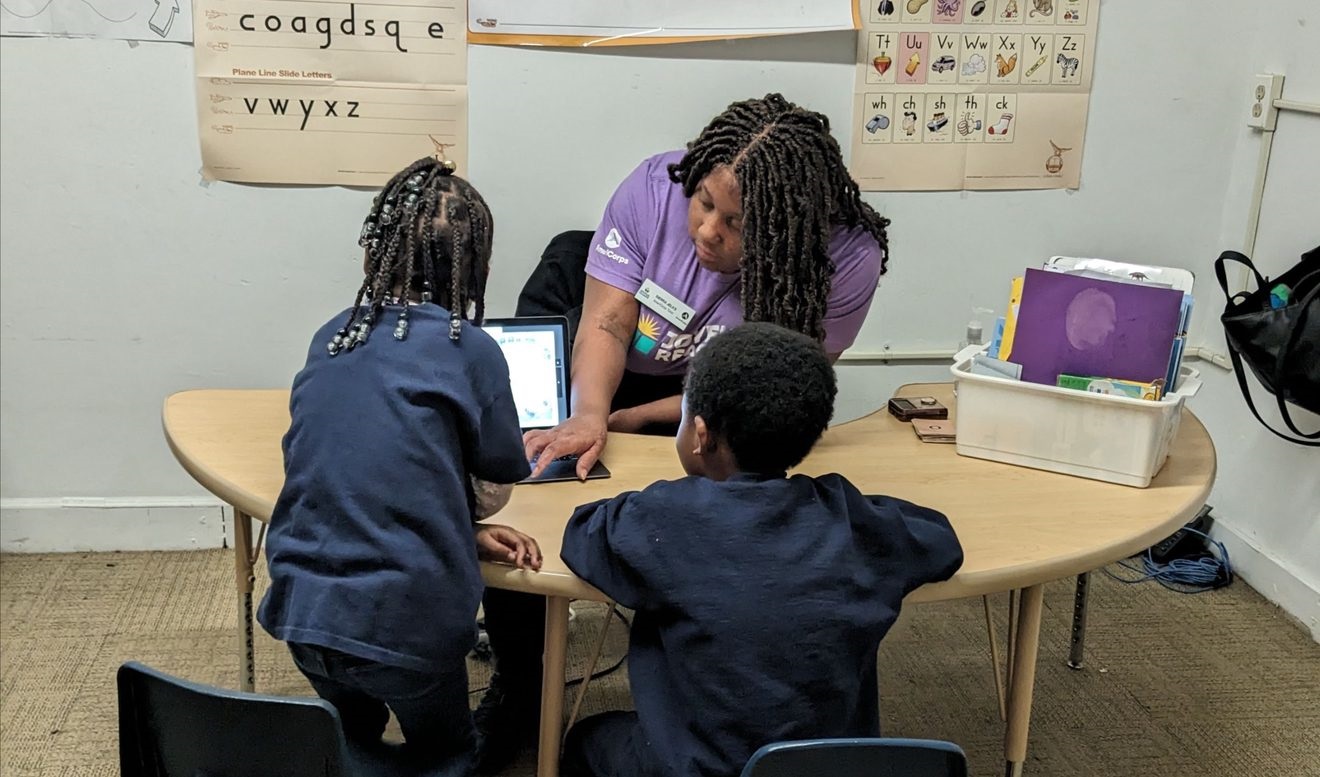
Kars4Kids: Can you give us an overview of the Joyful Readers reading program?
Sarah DeLucas: Joyful Readers brings full-time tutors directly into Philadelphia public schools to provide daily, intensive reading tutoring to K-3 students in need. Our tutors serve in small teams in elementary schools for a full school year. They work with the same 20 students each and every day in both 1-on-1 and small group formats. Throughout the year, we progress-monitor student learning to ensure each student is on track for success. Students who are performing well are moved off the caseload, making room for new students to be added to the program. Using research-based, high-quality curriculum endorsed by teachers and experts alike, students gain the literacy skills critical for success in school, at work, and in their daily lives.
Kars4Kids: Most of the literacy programs we come across at our small grants program depend on community volunteers, such as retirees, college students, or businessmen on their lunch breaks, to serve as tutors. Joyful Readers tutors, on the other hand, are all members of AmeriCorps. What are the advantages of having AmeriCorps members as tutors, as opposed to dedicated members of the community who desire to serve the public in a meaningful way?
Sarah DeLucas: The Joyful Readers service model is based on a vast body of research that has demonstrated the efficacy of high-dosage reading tutoring, especially when led by paraprofessionals such as AmeriCorps members. The study determined tutoring programs are most successful when the following 3 methodologies are deployed, which forms the basis of our program:
- After completing high-quality training, paraprofessionals such as AmeriCorps members provide reading instruction to students with consistent support throughout the year.
- Tutoring takes place in a high-dosage format, meaning that it is a daily activity that occurs in schools during the school day (as opposed to an afterschool, online or off-site program).
- Tutoring in reading has the greatest impact on students in grades K-3.
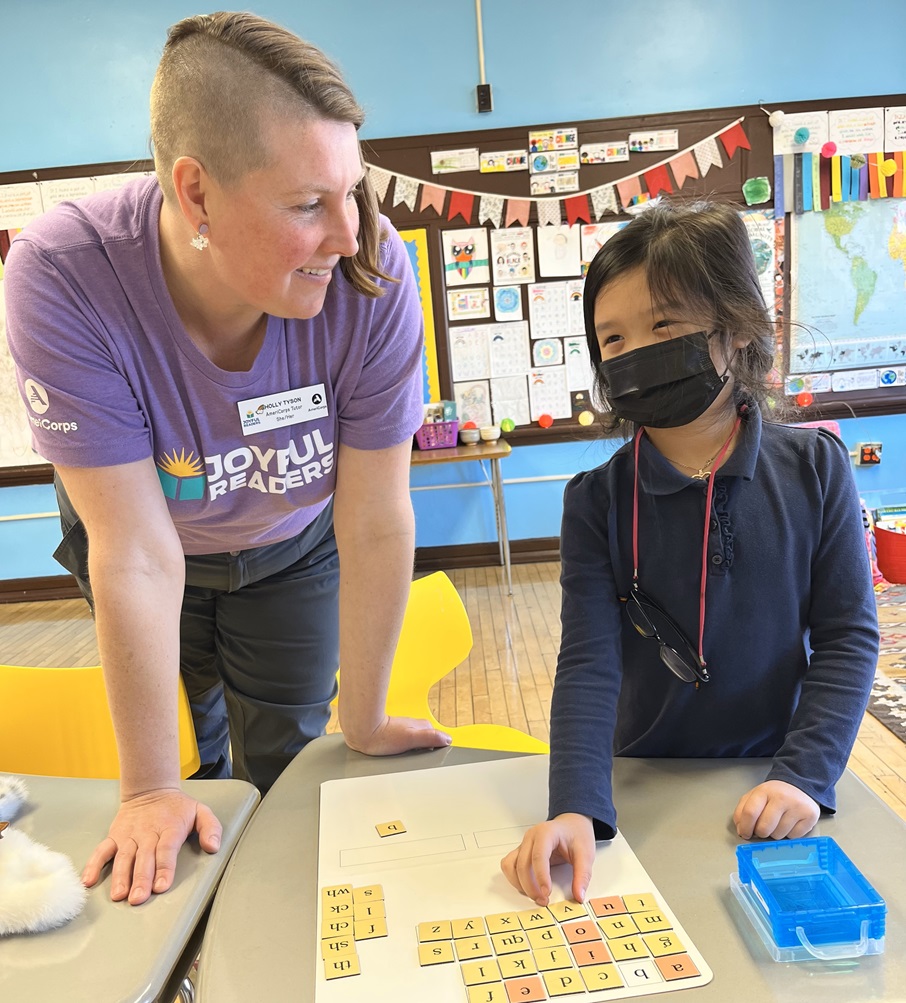 Kars4Kids: Joyful Readers tutors work a full 8-hour day. Other than feeling good about helping children learn to read, are there other incentives or benefits to becoming a Joyful Readers tutor?
Kars4Kids: Joyful Readers tutors work a full 8-hour day. Other than feeling good about helping children learn to read, are there other incentives or benefits to becoming a Joyful Readers tutor?
Sarah DeLucas: Many of our tutors come to Joyful Readers curious about a career in education and use the tutoring program as a way to experience working inside a school with students on a daily basis. Part of their training includes the AIM Pathways to Proficient Reading course, a graduate-level course. Each tutor receives 3 graduate credits from Arcadia University upon completion of the course. At the end of their service term, tutors receive an education stipend from AmeriCorps. Joyful Readers also offers plenty of professional development opportunities throughout the year, ensuring tutors receive the support they need to take the next steps in their career.
Kars4Kids: Your tutors undergo comprehensive training throughout the month of September. Doesn’t this mean that the students are losing a full month of reading help? Did you choose September so as not to spoil your tutors’ summer vacations, or is there another reason that makes September ideal as a training period for your tutors?
Sarah DeLucas: The reason why tutors start in schools in October as opposed to September is to give time for teachers and administrators to get to know their students and assess their skill levels. Staff can’t know which students are appropriate for our reading tutoring program until they fully understand their reading comprehension levels.
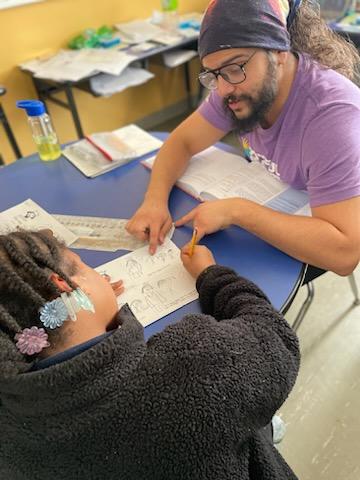 Kars4Kids: How many tutors do you have and how many students does each tutor work with in the course of the year? What would a typical day look like for Joyful Readers tutors and students? What, if any role do classroom teachers play in all of this?
Kars4Kids: How many tutors do you have and how many students does each tutor work with in the course of the year? What would a typical day look like for Joyful Readers tutors and students? What, if any role do classroom teachers play in all of this?
Sarah DeLucas: This school year, we have 50 tutors deployed to 18 Philadelphia schools. Tutors with the same 20 students each and every day in both 1-on-1 and small group formats. During their term of service, our tutors are managed and coached by a Literacy Coach (LC), who liaises with school administrators, literacy specialists, and teachers. The LCs observe and coach tutors at least once per week for the entirety of the school year. They also support our tutors with various day-to-day challenges such as building relationships with students and school staff, interpreting the results of reading assessments and ensuring students remain engaged in lessons.
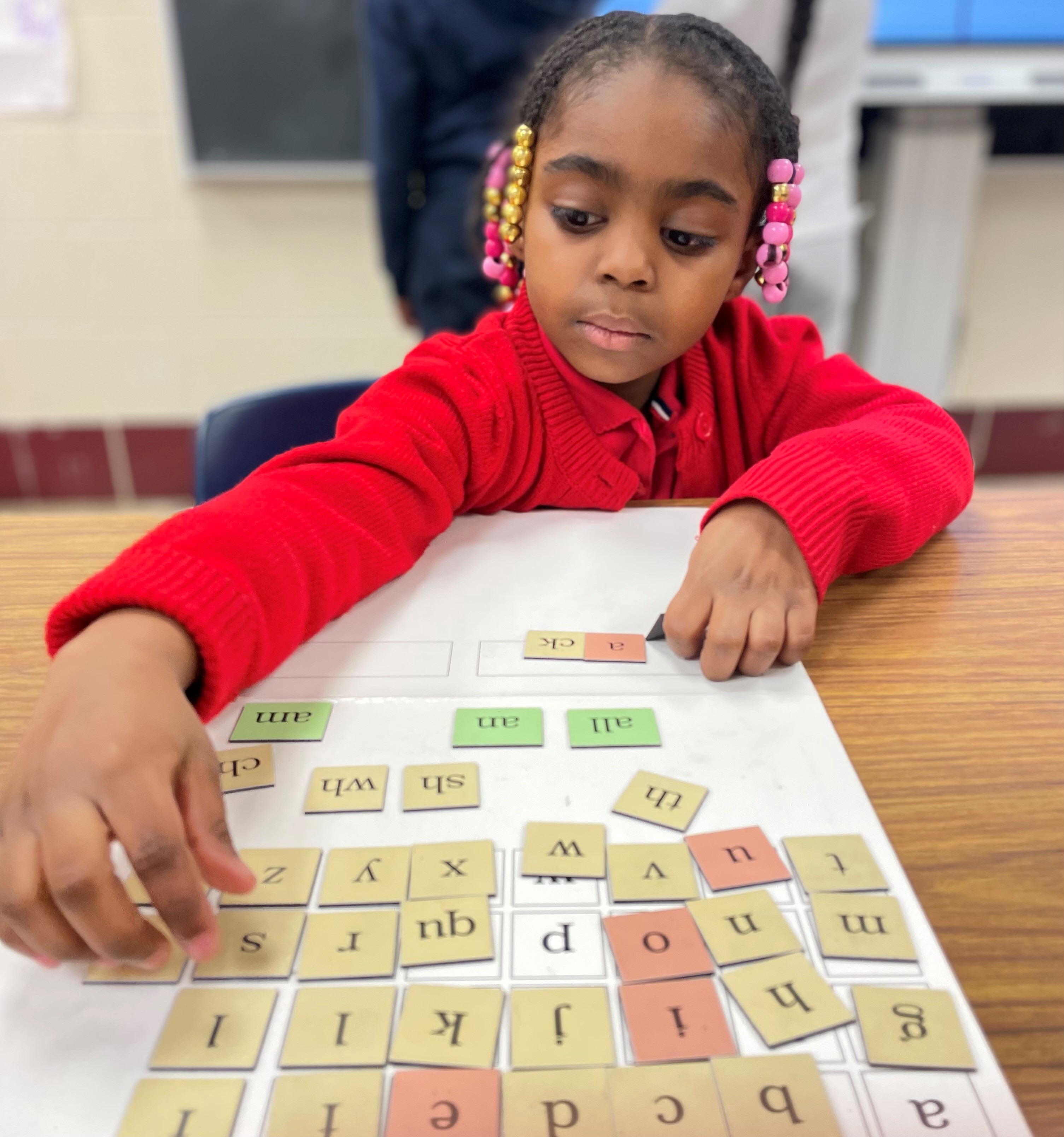 Kars4Kids: Training for your tutors is provided in partnership with the AIM Institute for Learning and Research. Can you tell us about AIM and why you have partnered with this body?
Kars4Kids: Training for your tutors is provided in partnership with the AIM Institute for Learning and Research. Can you tell us about AIM and why you have partnered with this body?
Sarah DeLucas: AIM’s course is based on the Science of Reading, which refers to a body of research that examines how people learn to read and the most effective methods for teaching reading. They are not only widely accepted in their field, they are local to the Philadelphia area.
Kars4Kids: During the training period, tutors also take a course called Pathways to Proficient Reading, an “IDA accredited” foundational course in the science of reading. Can you give us an overview of this course? What is the IDA?
Sarah DeLucas: IDA refers to the International Dyslexia Association. AIM Pathways to Proficient Reading Pathways to Proficient Reading is designed as a blended learning professional development opportunity introducing the Science of Reading to educators, special educators and reading specialists looking to incorporate evidence-based practices for language and literacy instruction.
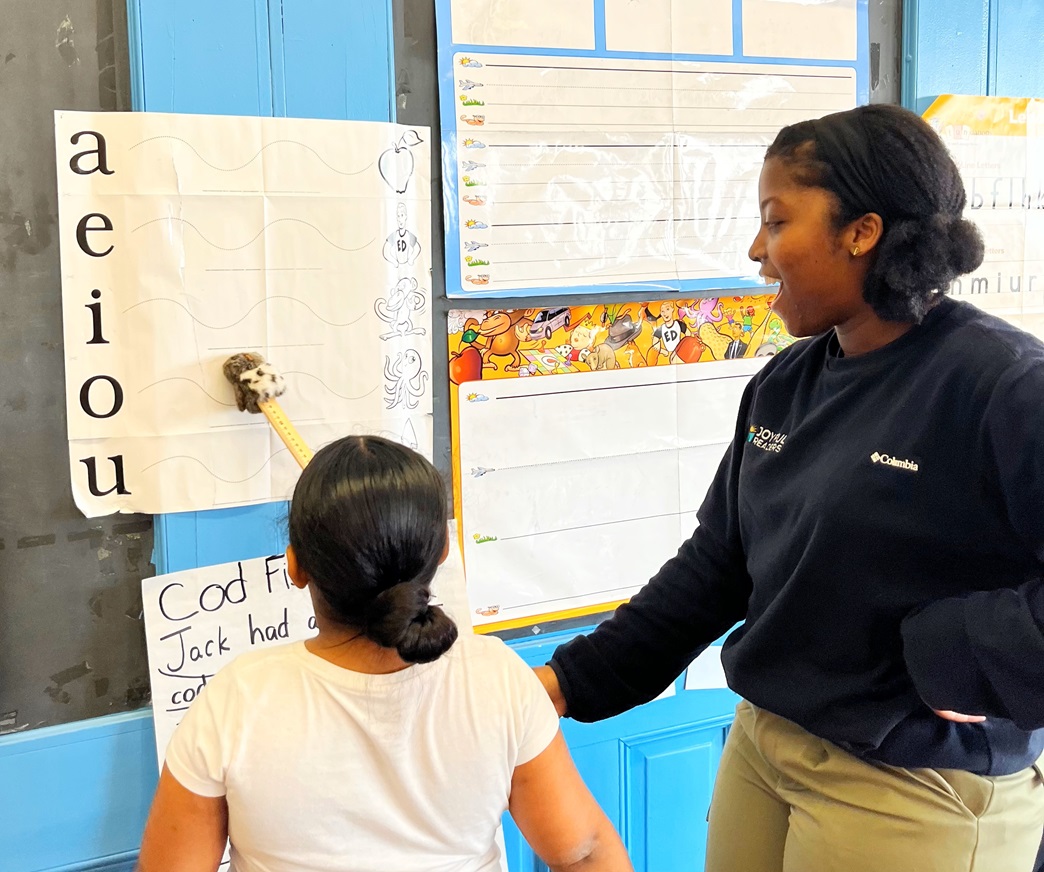 Kars4Kids: Joyful Readers is a relatively new initiative, officially in operation for only three years. What are you seeing when you measure the impact of your program?
Kars4Kids: Joyful Readers is a relatively new initiative, officially in operation for only three years. What are you seeing when you measure the impact of your program?
Sarah DeLucas: We’re pleased to share that Research for Action (RFA), an independent 3rd party research firm, provided a complete data analysis of our first year of programming (2022-2023). RFA determined Joyful Readers students’ reading growth at all 9 partner schools participating during this time period, outpaced the growth that would be expected in a typical school year. Students not only improved in reading, but also made meaningful progress towards closing the gap between their assessment scores and the national median score of students in the same grade between fall to spring. Joyful Readers students began the 2022-2023 school year reading at the 22nd percentile, and they ended the year at the 30th percentile. This movement toward grade level reading with a gain of 8 percentile points represents more than a year’s worth of growth! We’ve employed RFA to provide a data analysis on our progress last school year (2023-2024) and that report will be available in the spring of 2025.
Kars4Kids: What’s next for Joyful Readers?
Sarah DeLucas: Joyful Readers is focused on expanding our impact throughout Philadelphia. We continue to bring on additional school partners, and recruit more tutors to serve our expanding footprint. We are cognizant that there are over 30,000 Philadelphia K-3 students who currently read below grade level. A typical Philadelphia elementary school has a reading proficiency rate well under 50%. As a relatively new organization, we don’t have the capacity or funding to reach all the students in need. Only with time, perseverance, and funding from partners like Kars4Kids can we sustain our growth and impact here in Philadelphia, ensuring all students blossom into successful, confident, and joyful readers!